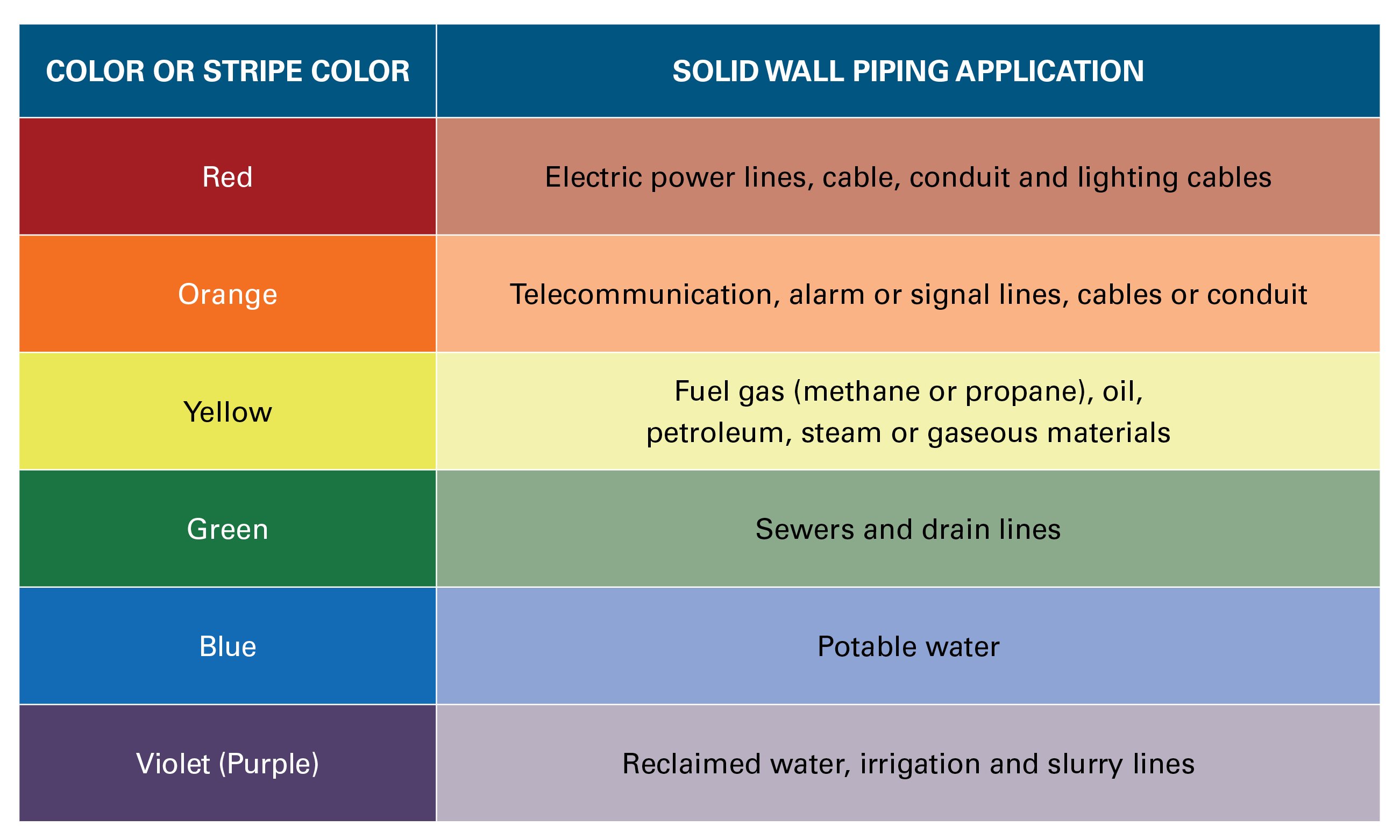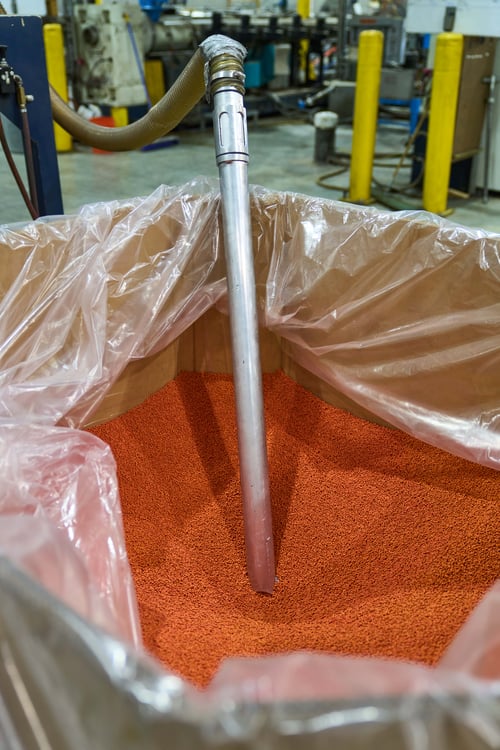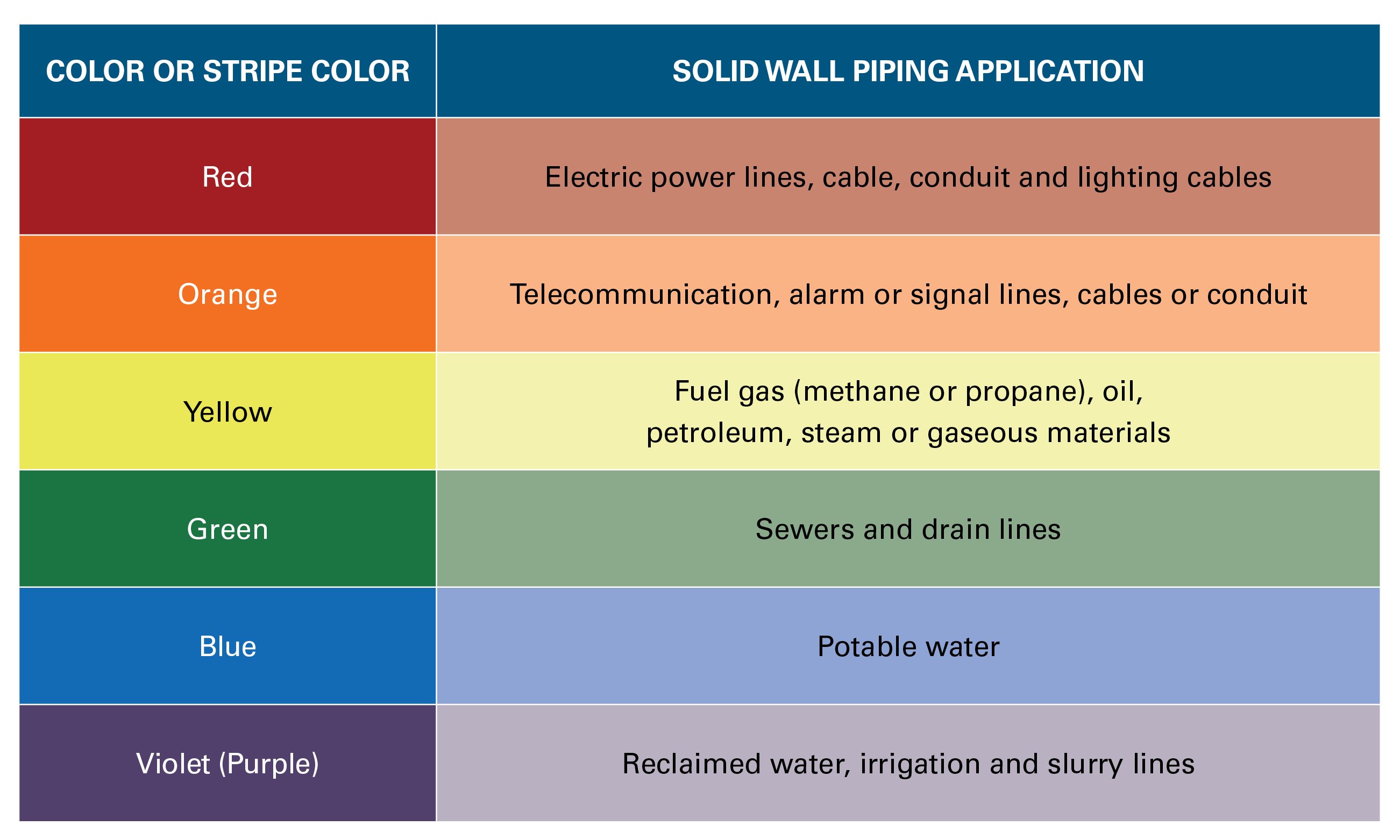“Know what’s below. Call before you dig!”
A buried line is damaged by digging activity almost every three minutes in the United States, according to 811, the national utility notification hotline.
Why is it so important to call before you dig? Gas, water and electric pipes are buried just out of sight. Digging without checking to see what is underground can be a costly and even deadly mistake. Fortunately, safeguards are in place to prevent accidents, like surface markings and color-coded underground pipes.
The American Public Works Association (APWA) Uniform Color Code is the definitive guide to HDPE pipe colors. The color code is a universal guide to solid and stripe colors for underground pipes. When construction crews, excavators or utilities companies encounter a pipe underground, the universal guide tells them exactly what the pipe is. The bright colors make it easy to see underground pipes, so they are not accidentally cut or broken. This is critical for safety, so workers do not disturb lines that contain dangerous gases, fuels or wastewater.
Additionally, different colors or shades can distinguish between raceway owners. In the telecommunications industry, it is common for multiple owners to have pipe in the same trench.
HDPE Color Code Guide
- Solid red or red stripes: electric power lines, cable, conduit and lighting cables
- Solid orange or orange stripes: telecommunications, alarm or signal lines, cables or conduit
- Solid yellow or yellow stripes: methane or propane fuel gas, petroleum, steam or gaseous materials
- Solid green or green stripes: sewers or drain lines
- Solid blue or blue stripes: potable water
- Solid purple/lavender or purple/lavender stripes: reclaimed water, irrigation and slurry lines
- Solid black: any application where the pipe is exposed to sunlight for a long period of time

Stripes are longitudinal, with three or four stripes at equally spaced intervals along the pipe. This allows the stripes to be seen from any angle. Stripes are often used to differentiate individual ducts within a bundle of pipe.
The Plastic Pipe Institute also follows the APWA color code. Additionally, PPI strongly recommends that yellow only be used for gas distribution piping. For more information, see:
- PE Handbook of PE Pipe – Chapter 14 on Duct and Conduit – Section 6.2
- PPI Statement V - Recommended Color Code for Solid Wall Plastic Pipe and Conduit
HDPE Pipe Color Additives
HDPE resin is shipped from the manufacturer in the form of small, colorless pellets. Color is added to the resin during the manufacturing stage. Carbon black additives are used to provide UV protection, as colored pipe will fade when exposed to sunlight. ASTM F2160 specifies the stabilizers in colored conduit should protect it in outside storage for one year. Colored pipes will eventually fade over time, even with UV stabilizers, which is why black is recommended for pipes that will be exposed to sunlight.

Customize Your Pipe with United Poly Systems
United Poly Systems offers fully customizable high-density polyethylene pipes. We manufacture pipe in 12 colors with additional striping options. Custom colors are available upon request. Contact us today to learn more about our products for the energy, power and communications, renewables and water infrastructure markets.

